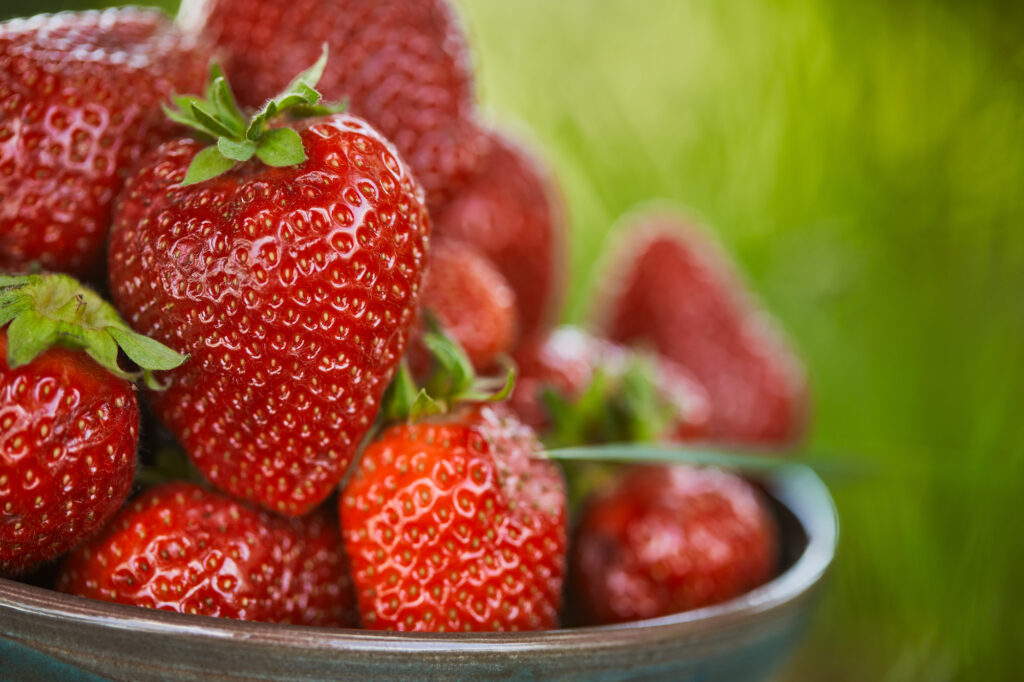Alzheimer’s disease is the most common form of dementia, affecting nearly 6 million people in the United States in 2020 and projected to impact as many as 14 million by the year 2060. Symptoms typically manifest after age 60 and include memory loss that disrupts daily life, difficulty completing familiar tasks, poor judgment, and trouble handling money and paying bills.
There are currently no effective therapies for this memory-robbing condition—and none on the way in the foreseeable future—which makes prevention and risk mitigation the targets of most Alzheimer’s and dementia research. To that end, Robert Kirkorian, PhD, and colleagues from the University of Cincinnati published a study in 2022 showing that incorporating blueberries into the diets of middle-aged people with insulin resistance reduced their risk of developing dementia later in life.
Now, Krikorian and his team are back with new research showing similar benefits for strawberries. Their results were published in November in the journal Nutrients.
The Study
The study followed 30 overweight men and women aged 50-65 years old who complained of mild cognitive impairment. Participants were randomly divided into two groups. The first group received the equivalent of 1 cup of strawberries daily in the form of a supplemental packet of strawberry powder prepared from whole fruit that had been desiccated, freeze-dried, and milled. The other group received a once-daily packet of placebo powder. Both groups were asked to avoid all other berry consumption for the 12-week course of the study.
Participants were given cognitive tests that assessed abilities such as long-term memory, problem-solving abilities, and mood at enrollment and again at the end of the study. When the results were assessed, the researchers found that participants in the strawberry group showed better results on several markers, including less memory interference during a word-list learning test.
“The finding of improvement in this regard for the strawberry-treated group might be understood as reflecting more effective executive control processes,” the researchers wrote in their conclusion. “In addition, we observed that members of the strawberry-treated group endorsed lower levels of depressive symptoms. This relative mood enhancement experienced by the strawberry-treated group implies improved emotional coping capability and lower levels of stress.”
Conclusions
In 2022, Krikorian and his team posited that the anthocyanins in blueberries may be responsible for their dementia-inhibiting effects, and this study added further evidence to support that idea. “Reduction of memory interference also was observed in a supplementation trial with blueberries in the same population; insulin-resistant, middle-aged individuals, corroborating the notion that anthocyanin supplementation tends to improve deficits associated with aging…” the researchers wrote.
While noting the study’s limitations in terms of sample size and duration, the researchers concluded that, “[T]his controlled trial showed that daily supplementation with 13 g whole fruit strawberry powder reduced interference in memory and depressive symptoms in overweight middle-aged individuals. These findings were understood as manifestations of improved executive control. Anti-inflammatory action of anthocyanin-containing strawberry powder was suggested as a primary mechanistic factor…
“These considerations highlight the need for further investigation of health and neurocognitive benefits associated with strawberry supplementation employing different dosages, larger samples, and intervention periods of varying lengths.”






